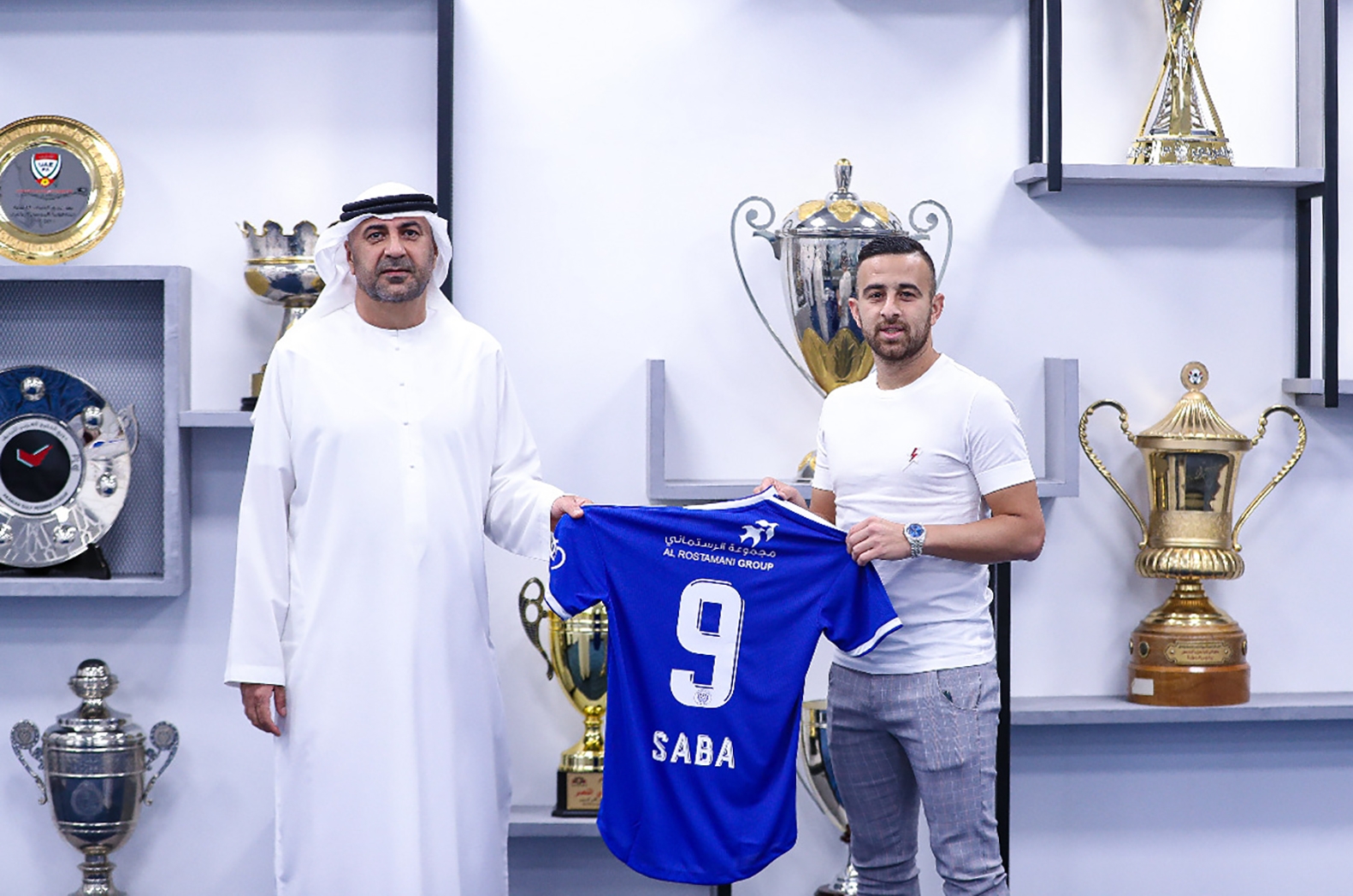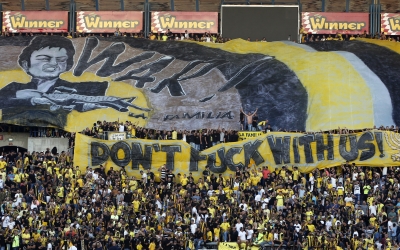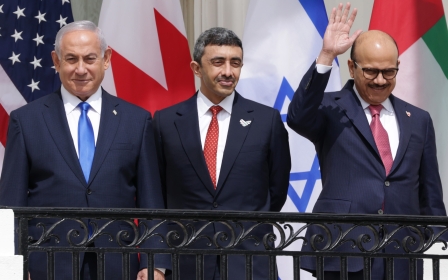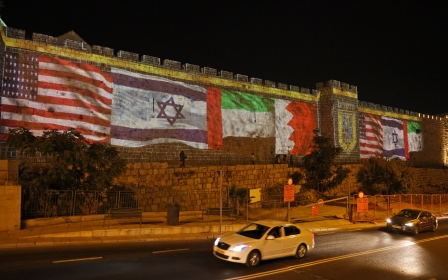Israeli footballer becomes first to join an Arab football league after UAE club move

A footballer from Israel will become the first player from that country to compete in an Arab league, after signing a two-year contract with Dubai’s Al-Nasr SC football club.
Diaa Saba, 27, who was born to an Arab-Israeli family in Majd al-Krum, an Arab town located in Galilee in Israel's Northern District, posted an image of himself on Saturday on a Dubai-bound Emirates flight, confirming his transfer from China’s Guangzhou R&F football club.
The move followed the UAE and Israel's agreement on 15 September to normalise relations during a ceremony at the White House, where Bahrain also signed a similar accord.
New MEE newsletter: Jerusalem Dispatch
Sign up to get the latest insights and analysis on Israel-Palestine, alongside Turkey Unpacked and other MEE newsletters
"Welcome to Diaa Saba at the Blue Citadel," Al-Nasr wrote on Twitter on Sunday, accompanying the tweet with a video of the player wearing a number nine jersey in the Al-Maktoum stadium. According to press reports, the transfer fee for Saba was $2.9m.
The midfielderplayed for Israeli clubs Maccabi Netanya from 2014-18 and Hapoel Be'er Sheva for the 2018-19 season, before signing for Guangzhou R&F last year for a record €5m ($5.8m), making him the most expensive Israeli footballer in history.
Saba has scored 87 goals in 255 appearances in all competitions and currently has 10 caps for the senior Israeli national team.
Last month, an Emirati businessman linked to an investment company owned by UAE Deputy Prime Minister Sheikh Mansour bin Zayed Al Nahyan made an offer to invest in Israel’s most controversial football club, Beitar Jerusalem, notorious for its links to the Israeli far-right and ruling Likud party, and for its racist anti-Arab and anti-Muslim sentiments.
The investment company, the Abu Dhabi United Group for Development and Investment, has a majority stake in the City Football Group, which controls football clubs on four continents, including Manchester City.
'Done the right thing'
In 2015, the Palestinian Football Association was forced to withdraw its call to have Israel suspended from Fifa over claims that it discriminated against Palestinian footballers in the occupied territories, following successful Israeli lobbying and the opposition of senior Fifa officials to the draft resolution.
Palestinians have accused Israel of failing to allow free movement of Palestinian or foreign players and for hosting five teams in the Israeli football league that are based in illegal settlements, which is in contravention of Fifa rules.
Last year, more than 200 Palestinian sports clubs, associations and Palestinian athletes called for the boycott of the sportswear company Puma after it became the latest brand to sponsor the Israel Football Assosiation (IFA).
Those behind the boycott campaign accused the German company of helping to normalise the occupation by allowing Israel to present itself as a “normal” country in international competitions.
Puma replaced Adidas as the IFA’s main sponsor after it ended its sponsorship in 2018 following a similar boycott campaign.
Adidas at the time said that it supported and upheld human rights and confirmed it had raised with Fifa the need for the body to make a decision regarding the status of the Israeli settlement teams.
The same year, Argentina cancelled a World Cup warm-up match with Israel scheduled to take place in Jerusalem after the match had been moved from Haifa, following pressure over Israel's treatment of Palestinians.
Argentinian striker Gonzalo Higuain said at the time that the team had "finally done the right thing".
Middle East Eye delivers independent and unrivalled coverage and analysis of the Middle East, North Africa and beyond. To learn more about republishing this content and the associated fees, please fill out this form. More about MEE can be found here.





